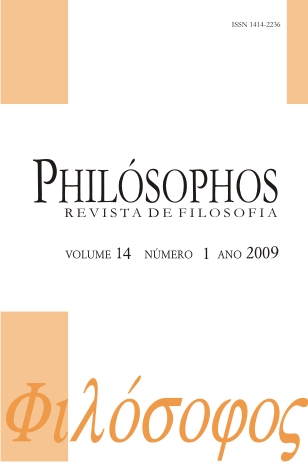HABERMAS AND THE QUESTION OF THE COGNITIVE VALIDITY OF MORAL AND THEORETICAL STATEMENTS
DOI:
https://doi.org/10.5216/phi.v14i1.9121Keywords:
Discursive theory of truth, moral cognitivism, moral realism.Abstract
A cognitivist and discursive ethics must distinguish itself from two other metaethical positions: on one side, a cognitivist but non-discursive ethics; on the other side, a noncognitivist but communicative, argumentative and procedural ethics. The aim of the present work is to use Habermas’ reflections on the topic of truth to develop an ideal-typical scheme which could be helpful in explaining those distinctions. This scheme will contain three typical conceptions about the truth of theoretical statements: realist-intuitionist conception, objectivist-semantic conception and discursive-consensual conception. The distinctiveness of the cognitive-discursive ethics will then be explained by relating the cognitivist but non-discursive ethics and the noncognitivist but procedural ethics to their respective conceptions of truth: the realist-intuitionist conception and the objectivist-semantic conception.Downloads
Downloads
Published
How to Cite
Issue
Section
License
Authors who publish in this journal agree to the following terms:
- Authors retain copyright and grant the journal right of first publication, with the work simultaneously licensed under a Creative Commons Attribution License that allows others to share the work with an acknowledgement of the work's authorship and initial publication in this journal.
- Authors are authorized to enter into separate, additional contractual arrangements for the non-exclusive distribution of the journal's published version of the work (e.g., publishing in an institutional repository or as a book chapter), with an acknowledgement of its authorship and initial publication in this journal.















